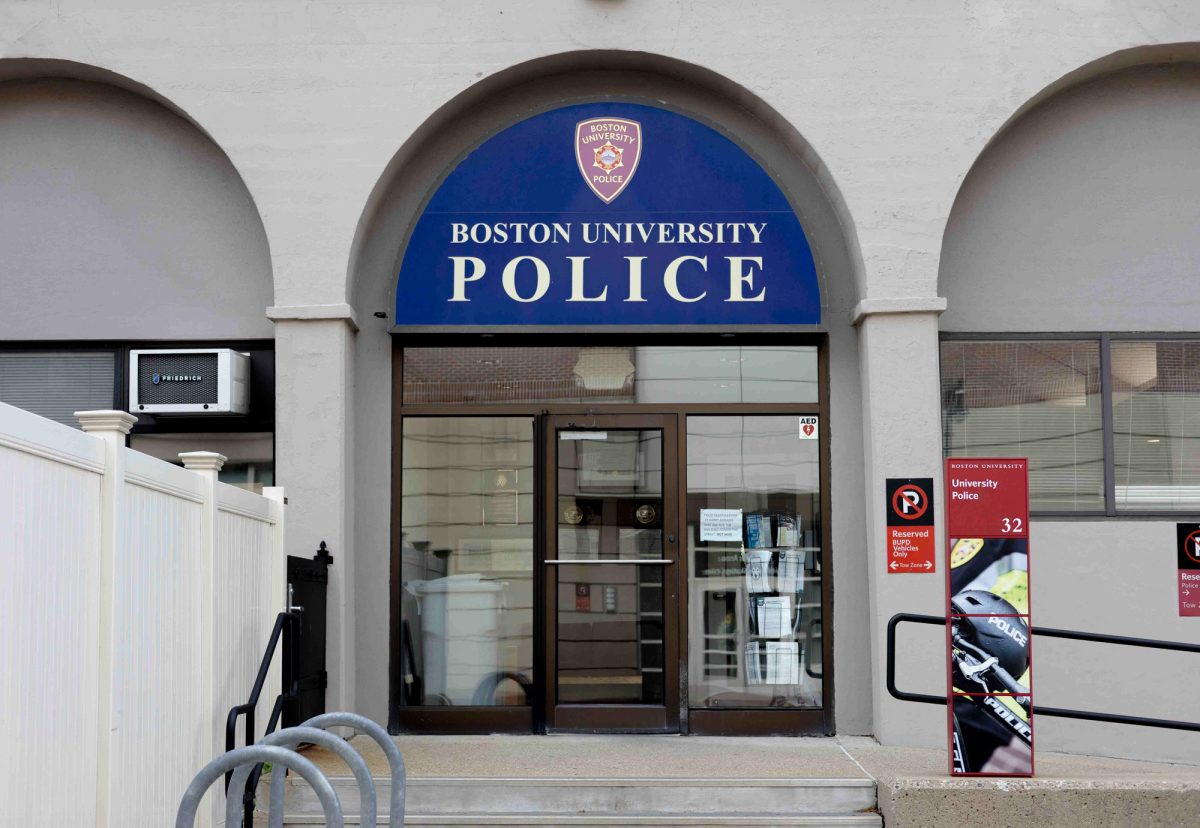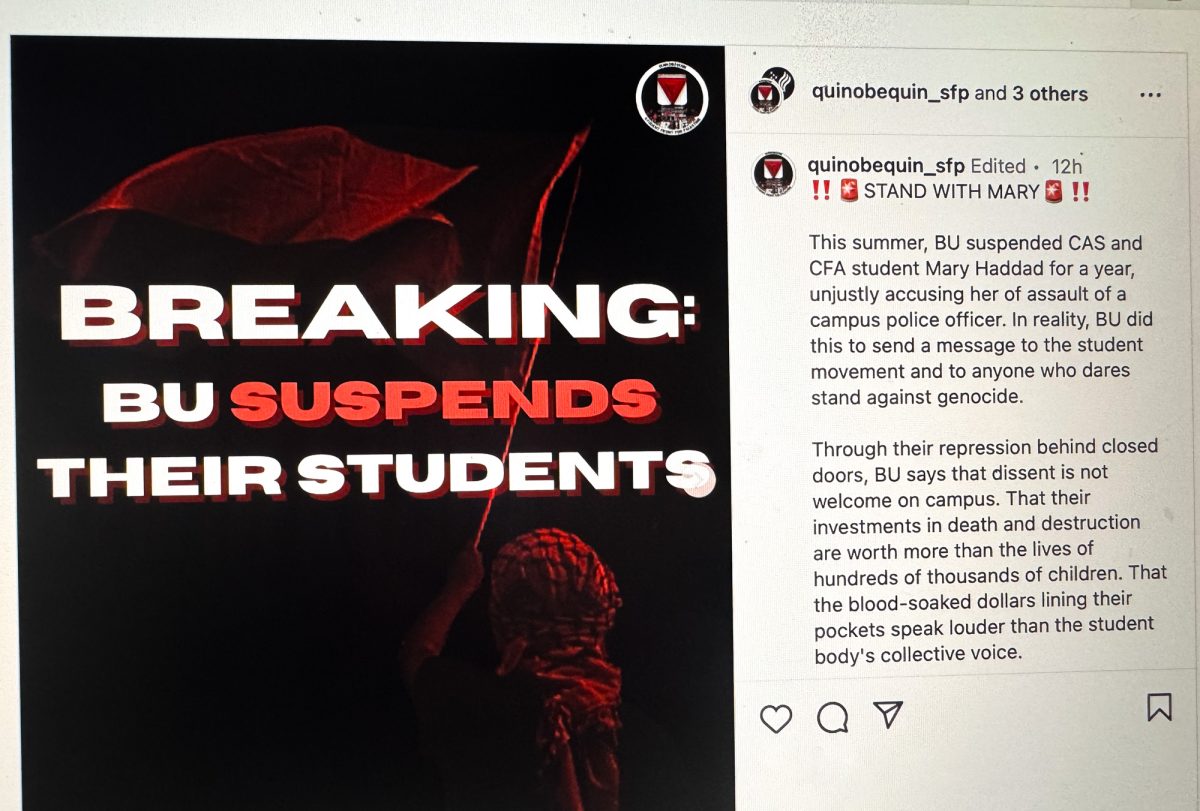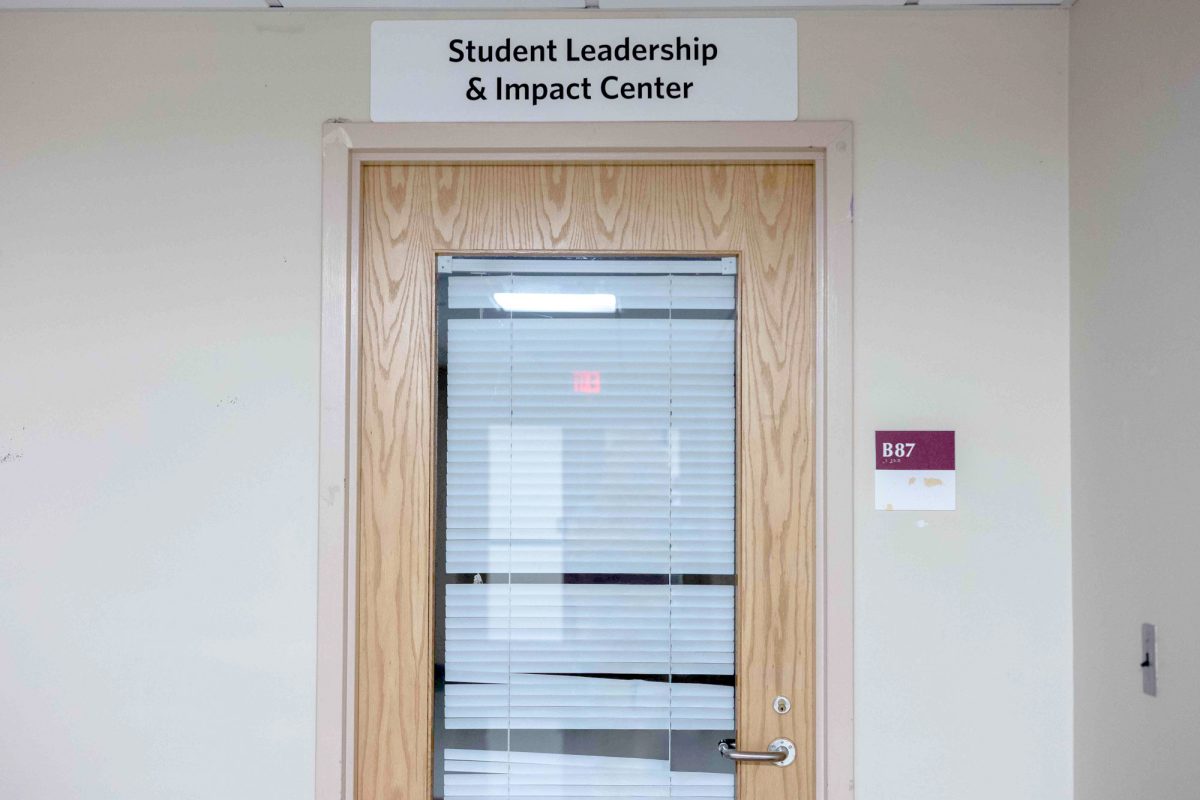Among a sea of backlit, bitten apples propped atop tables in the George Sherman Union, Michelle Higgins typed away on her PC on a School of Management project on Monday. Higgins, who has always owned PCs, said that her internal debate between purchasing a Mac or PC was solved by her school’s suggestion to purchase a PC. But deep down she still toys with the idea of becoming a MacBook owner.
When it comes to computers, Higgins is not the only BU student who has struggled over picking a side.
The number of Macs on Boston University’s campus has been growing consistently since 2003 when only 729 of 10,617 students who were registered with the ResNet system were Mac users, Jim Stone, the director of consulting services at BU’s Office of Information Technology, said. As of 2008, the number has increased substantially to 4,388 out of more than 11,000 students.
In addition to the appearance of more Macs on campus, students who walk into University Computers looking to purchase new computers are overwhelmingly choosing Macs over PCs. In 2008, 75 percent of the computers purchased from University Computers were Macs.
‘From what I’ve seen from others, Macs last longer and are more durable,’ Joe Levin, CAS sophomore and treasurer of MacBU, said about the longevity of computer life. ‘It is common for PCs to get viruses, but as long as you practice safe driving you will be fine.’
Despite, the majority of students gravitating toward Macs, others say choosing a computer is just a matter of preference.
‘We have a student body that is more interested in Macs than PCs,’ Stone said. ‘But despite these statistics, there are people who would not give up their PCs.’
Matter of Preference
According to Stan Sclaroff, chairman of the computer science department, there is no real difference between the quality of Macs or PCs.
‘Both can be programmed to do the same things, and students can complete their assignments on either platform.’ Sclaroff said. ‘There is no preference for a PC produced by Apple, aka a Mac, versus a PC produced by another manufacturer, like Dell or IBM.’
When purchasing a computer, you are also purchasing the operating system that comes on that device, for example Unix, Linux, Windows, Tiger and Leopard. Unix is the operating system most often used for Macs and Linux for PCs. Any operating system can go through virtualization, which means that it can emulate all of the functions of another operating system and the computer becomes only a platform on which the operating system will perform.
This virtualization allows users to install and use any software regardless of the type of their computer or operating system because the system can be manipulated, Sclaroff explained.
Because the system itself has no internal difference, the superiority of either Macs or PCs will be seen in the durability of the computer.
‘You get what you pay for,’ Peter Brunet, a junior in the College of Communication and vice president of MacBU, said. ‘ The reason Hewlett-Packard and Dell can sell $500 computers is because they are only worth $500. They cut costs and use sub-par parts, where as Apple, in general, uses higher quality parts.’
Still, if both types of computers are essentially the same, that doesn’t explain why some students are so loyal to certain brands.
Defining ‘User-Friendly’
Brunet said that his family has owned a Mac ever since he can remember, and as VP of MacBU he shares his enthusiasm of Mac products with other students. He said he has seen Apple grow as a company and improve the quality of its product over the years.
Macs are better protected than PCs against viruses because there are fewer viruses written for Mac and they are made to be more secure, he said.
A decade ago, Macs were not very compatible with other kinds of software and could not use programs like Microsoft Word. Since then, the computers have come a long way.
‘It is great to go from 10 years ago when Macs were generally scoffed at, and now when you look around half of the computers used today are Macs,’ Brunet said. ‘It’s nice to see the company growing and see people appreciating them for making a great product.’
Higgins did not share the similar experience of one computer being more virus-resistant compared with another. When her PC recently contracted a virus, her SMG teammate’s Mac computer also contracted the same one.
Amy Jones, a College of Arts and Sciences senior, constantly had viruses on her PC for a full year before switching to a Mac. She said that she thinks Macs are more user-friendly.
‘ENG programs don’t run as well on Macs as on PCs, so I have to use PC labs on campus,’ Jones said. ‘I do wish they were compatible, but if I had to choose, I would get another Mac.’
Kelley Allenspach, a COM senior, doesn’t use her MacBook much and finds the features of her three-month-old computer confusing. Allenspach said she wishes she had taken a tutorial on all of the features.
Advertisement Attacks
Macs’ advertising campaign has been one of the driving forces in the rising number of Macs on campus, according to Stone. The PC attack ads that depict Macs as a younger, skinnier man and PCs as an older, fatter man are effective because they are funny, Kaelin Mcgill, a COM junior said.
Apple also uses new music in its ads to catch people’s ears.
‘Instead of submitting to record companies, unknown artists are looking for Apple to use their songs in their advertising,’ Allenspach said. ‘They are great at being timely.’
Apple advertisements attempt to grab the attention of the company’s target audience, which includes college and high school students, Stone said. But, to others, Mac is just preaching to the choir. Higgins said that Apple is targeting the people who already have or want to have Macs.
‘Mac ads are definitely better,’ McGill said. ‘My dad hates Macs, and that’s why I didn’t get one . . . he went with what he knew.’
Microsoft’s new advertising campaign strikes back using the same techniques Apple originally started with. They show PC users who look fun and adventerous.
‘PCs have finally found a campaign that is not lame, but it is insane how cool and trendy Macs are,’ Allenspach said.
Apple has created an image for itself that is extremely important in advertising, said Brunet, who praises attack ads for keeping both companies on their toes.
‘The blatant attacks on each other keep each other in check, but the exaggerations of the characters and the stories keep them competitive,’ Brunet said.
Brunet’s MacBU fellow executive board member, Levin, said he wishes Macs and PCs would spend less time and money on destructive ad campaigns and use the advertisements to educate people about the benefits of each computer.
Mac ads are the ones that you remember, Stone said – a feat he admits is hard to achieve.
‘Apple makes a great product and has tremendous brand loyalty,’ Stone said. ‘It is the cool machine and people want to feel that way when they buy them, and I think it is working because it really is a cool machine.’
BU’s Requirements
When students are choosing between Macs and PCs, they should take into consideration how they will be using the computer and what their school or program suggests for them, Stone said.
SMG has classes requiring PC use, and if a student has a Mac they must figure out how to perform the same functions on their computer, according to Higgins.
ENG has programs that run more smoothly on PCs, but professors are split and some use Macs while others prefer PCs, said Jones.
COM and College of Fine Arts students often feel that they should use Macs because they are more compatible with creative programs that are used in advertising, magazine layout, photography or graphic design classes, Allenspach said.
In other majors, computer models are irrelevant. Ultimately, papers will be submitted in Microsoft Word format or handed in as a hard copy from the student to the instructor, according to Sclaroff.
BU has both PC and Mac labs available on campus in case a student does not own a certain system that they need for a class, or if they do not have a computer.






















































































































Ben • Aug 3, 2010 at 2:20 pm
Linux is not the most common operating system used for PC’s… Where on earth would you get that information from? Windows is by far the most dominant. Ever hear of Bill Gates? His monopoly on PC operating systems is the reason he’s one of the richest people in the world.<p/>Also, Ms. Higgin’s friend did not get the same virus on her Mac. That’s simply impossible, like a man getting pregnant. Unless of course her Mac was running Windows. Please do basic fact checking before you quote people.<p/>I’m not even sure why I read this article…